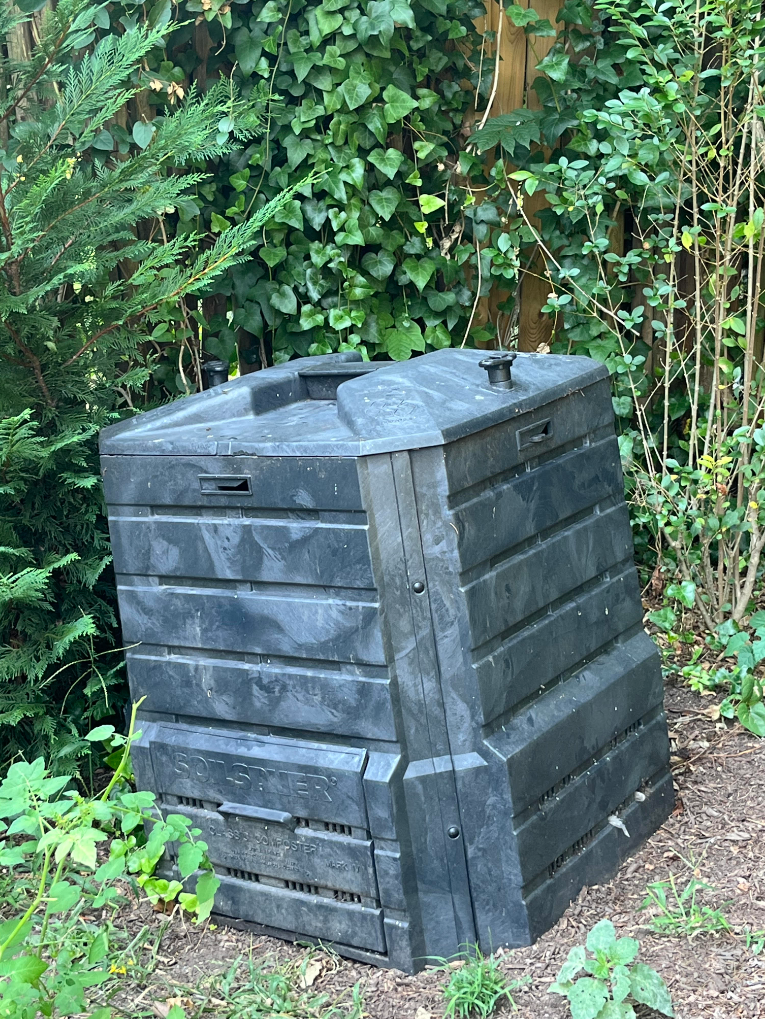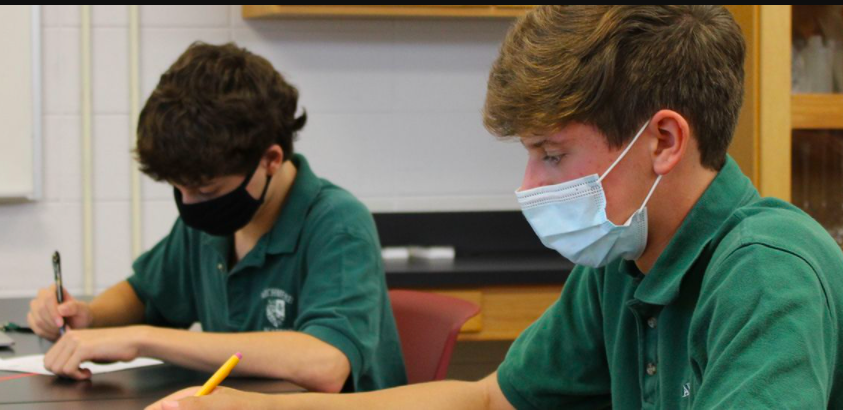Archmere Rolls Out New Schedule: Students weigh in on new elements added to the school day
November 22, 2021
This year, the Archmere administration has introduced a new class schedule to readjust from COVID-19 restrictions placed on the school day last year. Throughout the past few months, students have navigated the ups and downs of the new schedule, and the administration has seen how their plans are unfolding among the school community.
The process of developing this schedule was no quick task: Mr. Dougherty, Archmere’s director of academics, had been looking for solutions to scheduling problems since before COVID hit, in the spring of 2020.
“Prior to COVID, I had already formed a committee to re-evaluate the then-current schedule… because that had problems,” he says. The main issue—which later became a central element of this year’s schedule—was having double lab periods take up students’ time in elective classes: “If you had a lab which cut into your next block, you either had to miss a day of your art class or music class.”
Both the remote schedule that he had to create in the spring of 2020 during lockdown and the 2020-2021 school year schedule provided important insights for Mr. Dougherty and the rest of Archmere’s scheduling team.
“We had learned from the spring schedule [in 2020] that we could survive without labs to some degree, or that we could do longer periods,” he explains. “All of last year taught us huge lessons: we can survive without the double period of the lab, we can do any schedule that we want, [and] we can work community time into the school day.”
All of these discoveries influenced Mr. Dougherty’s creation of two new schedules for the 2021-2022 school year, as Archmere planned to return to full-size classes and remove the async periods that were needed in light of COVID-19 restrictions. The first schedule had eight shorter classes per day, and the other had six longer classes per day. After surveying the faculty and assessing expectations, the Work Period was created to shorten the classes in the six-period day schedule and ease the transition into a routine of going from class to class.
“A lot of kids found value in the async time, so we didn’t want to completely abandon the opportunity to get work done in school,” Mr. Dougherty explains. “The Work Period was a direct result of preserving the element, or at least the spirit, of that free time—which seems to be working.”
Most students agree that the Work Period provides crucial time to catch up on homework or to organize their time in school. “I find it very useful to break up the day and get some work done, “ Benjamin Cole ‘24 says. “On days without a free period, the Work Period makes it much easier.”
One of the major changes in this year’s schedule is the addition of two days consisting of 75-minute block periods, which accommodates the lab periods needed for science courses, without cutting into other classes. Additionally, these blocks allow teachers to extend their lessons and focus on a wide array of projects in class, which Mr. Dougherty has seen to be effective thus far.
“I think teachers are actually okay with [having block periods],” he says, “and kids haven’t seemed to really mind it as long as teachers are providing some sort of variety in their lessons.”
Although some students find the block period days to be tedious—“The block period days feel very long,” says Ryan Dalton ‘23—others have found them to be interesting and enjoyable. “I thought that the block days would be boring and overly long, but as time goes on, they seem to be more fun because we do a variety of different activities in class,” Isabella Doncel ‘24 adds.
In general, students also have mixed feelings about this schedule compared to the 2020-2021 schedule. Some students feel more engaged, as their classes are able to meet more often: “We get more time with each class per week, and I feel like that’s so much better than the very little time we got last year,” Raphael Coronel ‘23 says.
However, it has added more of a strain on student life for others. “[Last year’s schedule] created a pre-college-like atmosphere, and I was able to spend more time outdoors. It was a better-timed schedule for my mental health,” says Katie Benson ‘23.
Archmere principal Madame Thiel is a fan of the new schedule and how it has improved the school’s overall atmosphere. “I just feel like it’s a little bit more measured and even-keeled than the old seven-period schedule was. I don’t feel as much frenetic energy on campus,” she notes. Especially in the midst of recovery from the COVID-19 pandemic, a gentler pace is certainly a welcome change at Archmere.





















